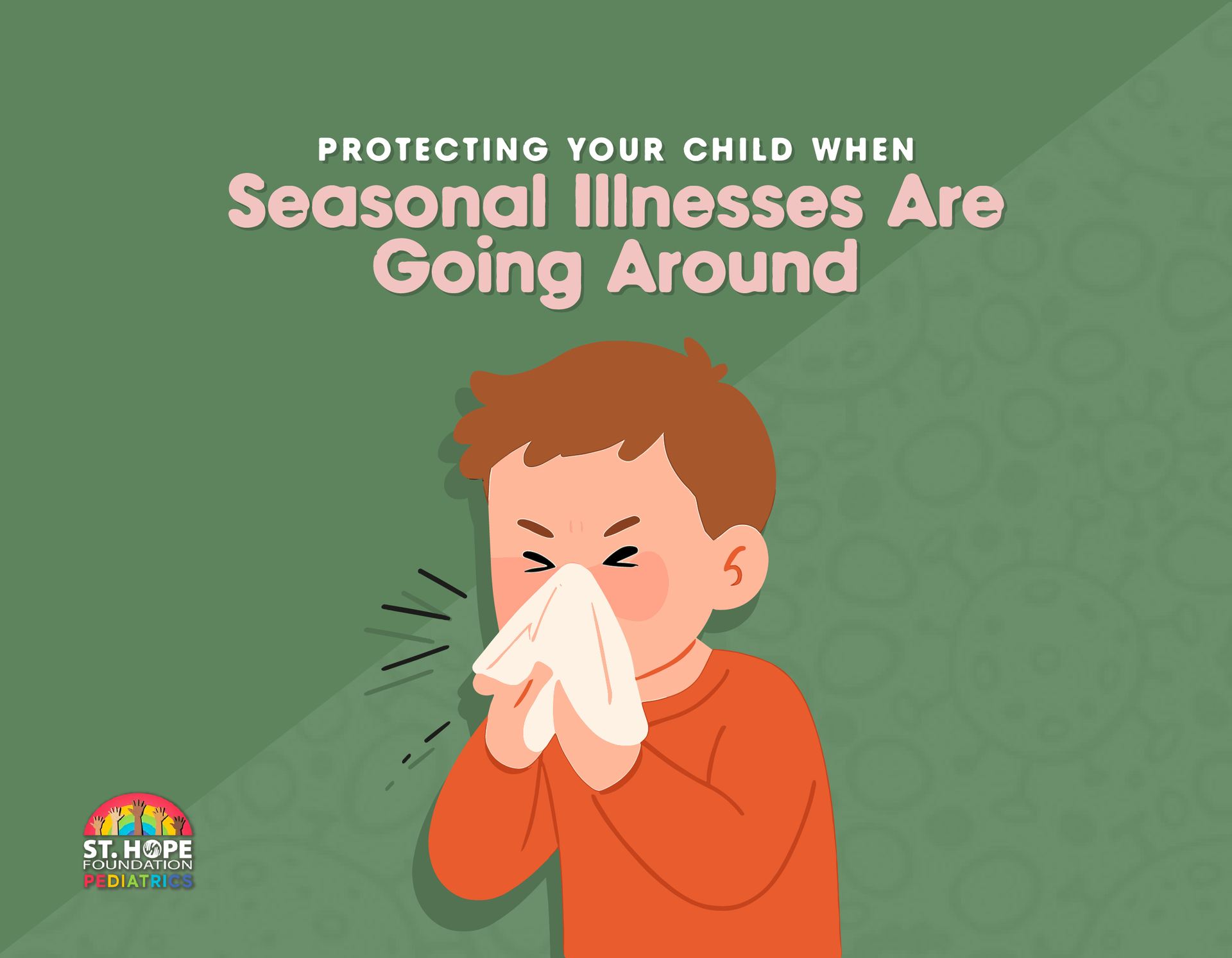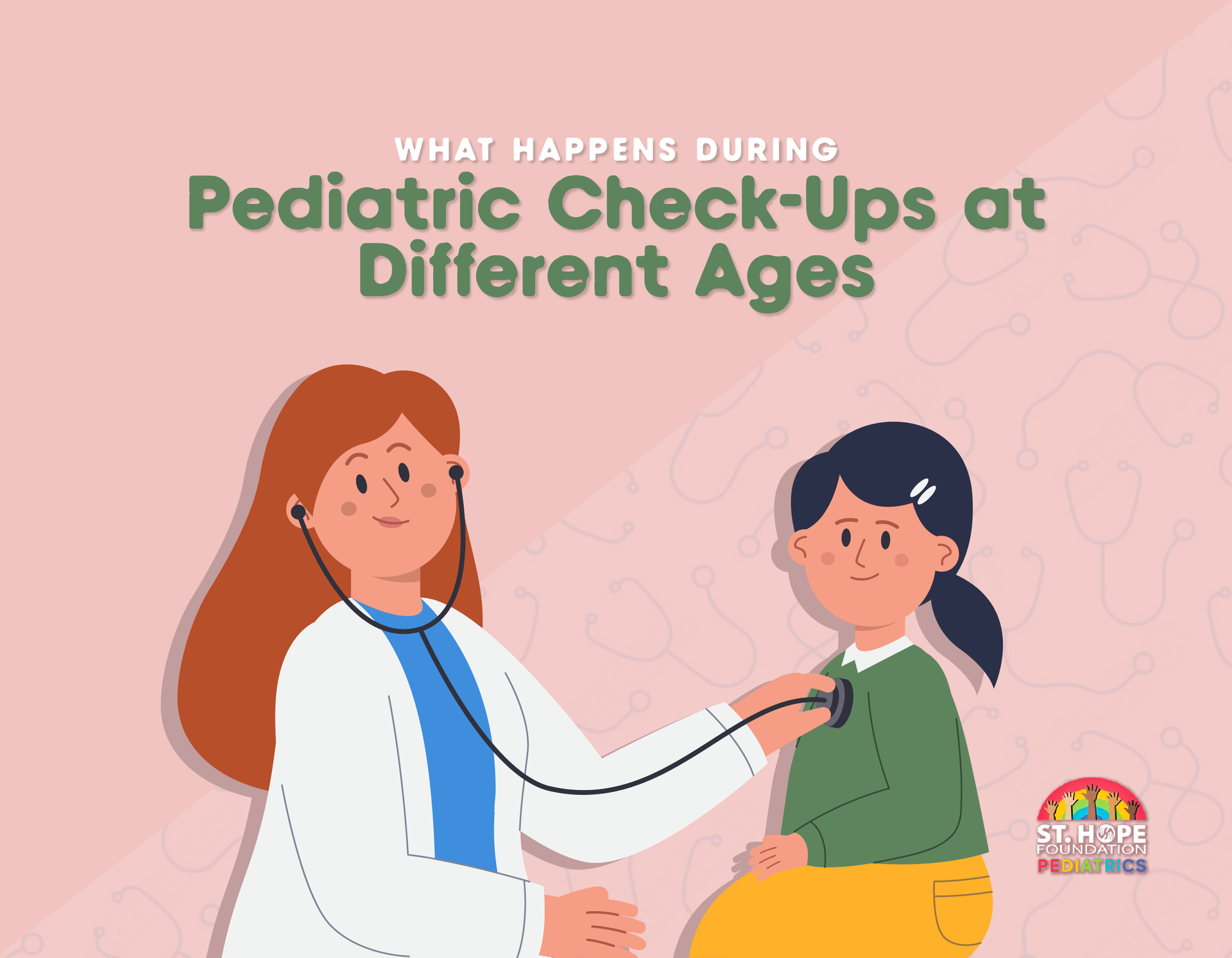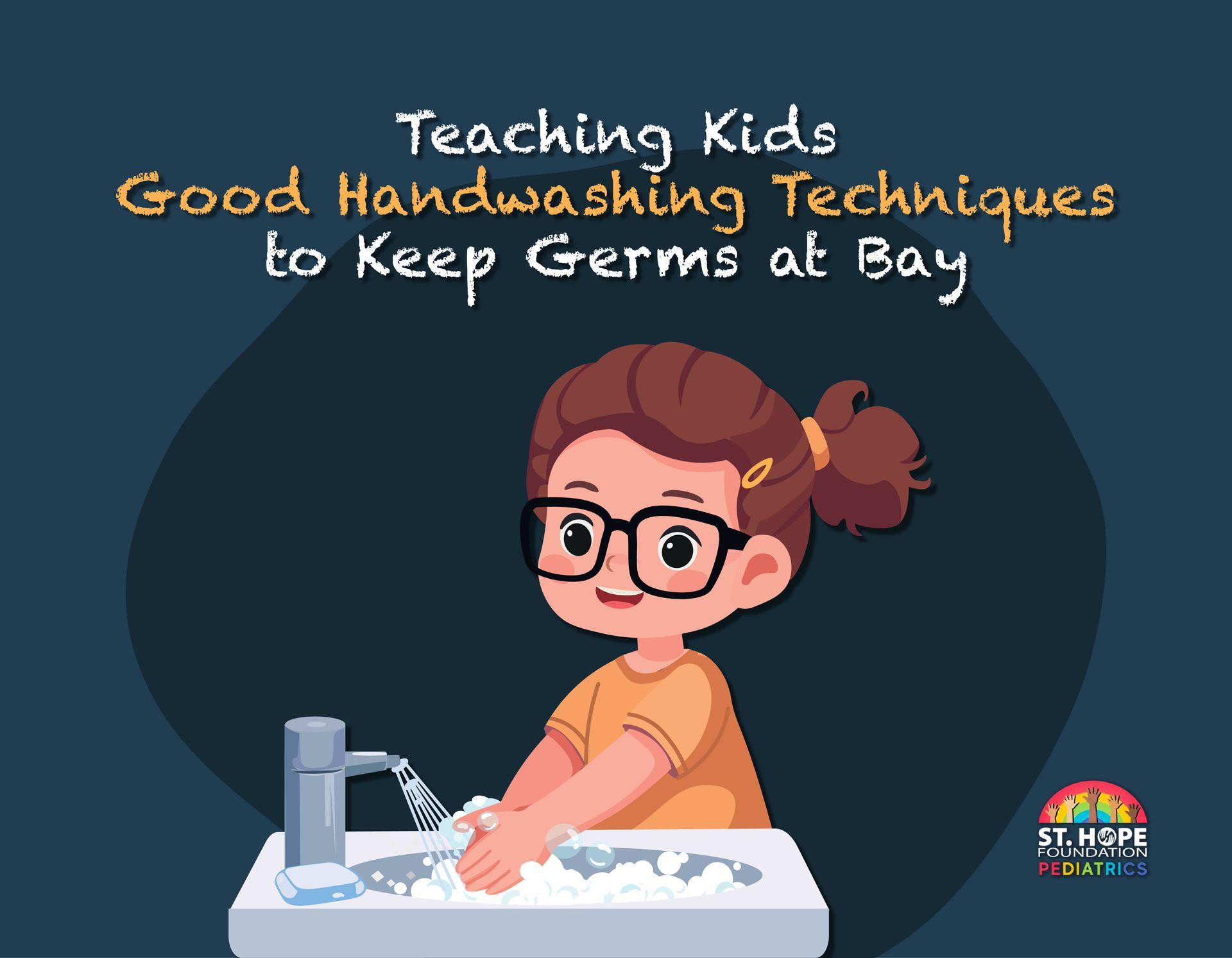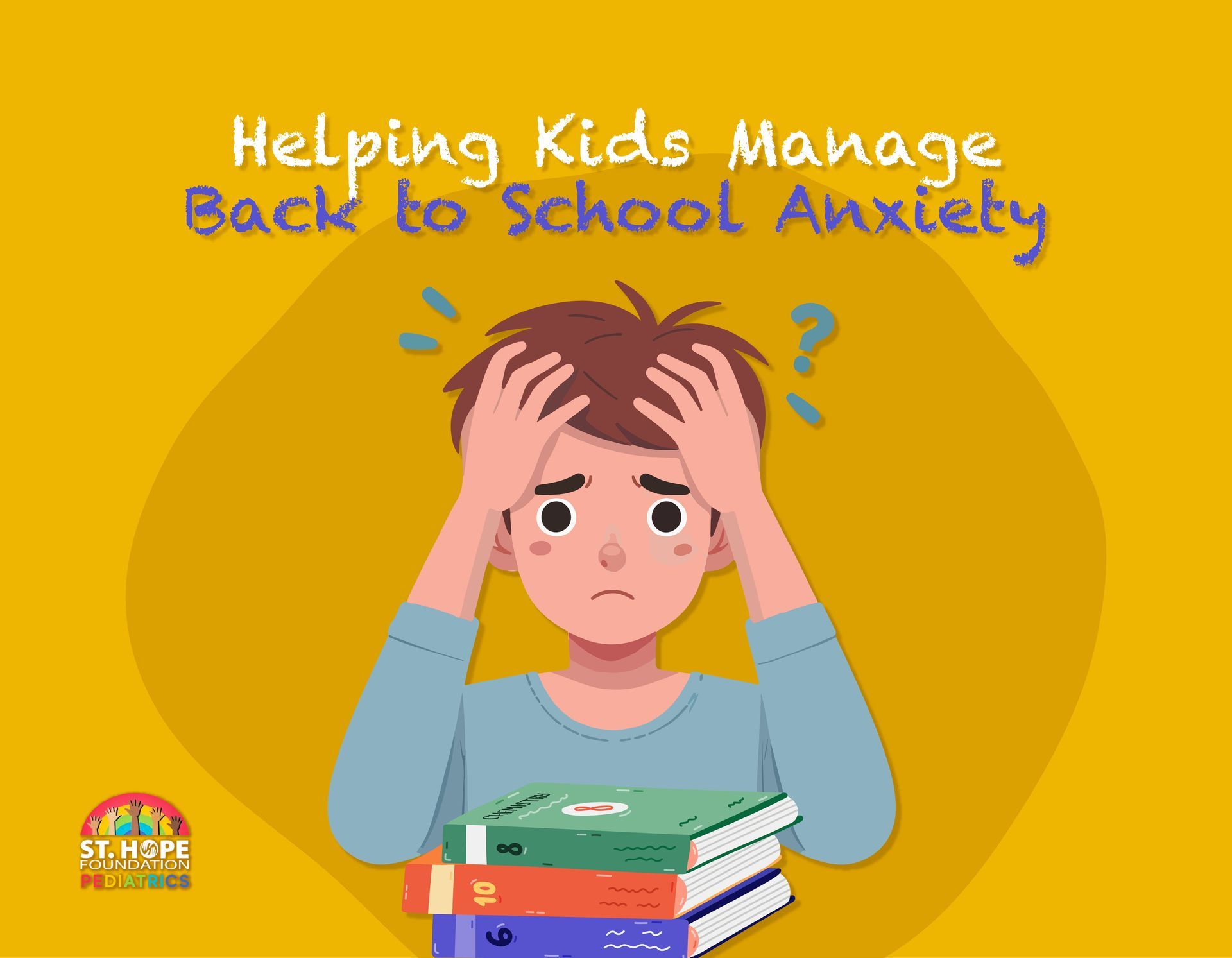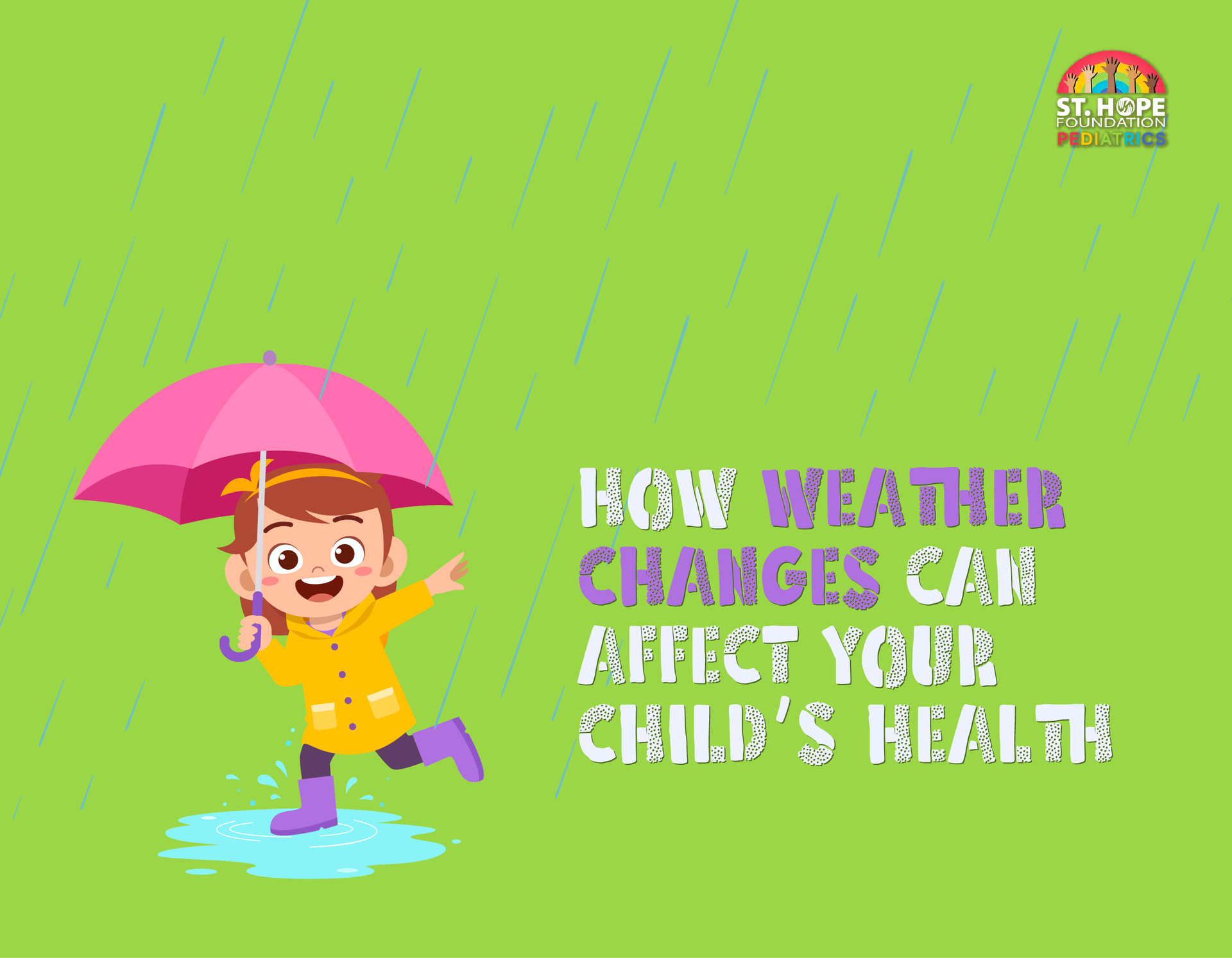
Changing weather and environmental factors bring new health challenges for children. While many of these issues are common and temporary, they can still be headaches for parents.
At St. Hope Pediatrics, we believe prevention and early care are key to navigating seasonal health changes in pediatric care.
Colder Weather and Winter
When temperatures drop, children tend to spend more time indoors, and that often means more exposure to germs. They’re also in school all winter, spending at least eight hours a day packed in with other kids. Winter ailments can spread like wildfire in those conditions, which is part of why they’re some of the most common.
Common Winter Health Challenges
● Colds and flu: Viruses spread more easily in indoor environments with less ventilation, like classrooms.
● Dry skin and eczema flare-ups: Cold air and indoor heating both dry out the skin.
● Asthma aggravation: Cold air can trigger bronchospasms, making asthma worse.
● Seasonal affective disorder (SAD): Shorter days and less sunlight may impact mood, even in children.
Tips for Winter Wellness
● Encourage frequent handwashing and teach them to cover coughs/sneezes.
● Use a humidifier to balance dry indoor air.
● Keep your child’s skin moisturized with fragrance-free lotion.
● Dress them in breathable layers to manage temperature changes.
● Ensure adequate daylight exposure or talk to your doctor about ways to ensure they get adequate vitamin D.
Spring Allergies
Spring brings beauty, like blooming flowers and budding trees, but also pollen. Seasonal allergies (also known as allergic rhinitis or hay fever) are extremely common in children and can interfere with sleep, school and outdoor play.
Common Spring Health Challenges
● Sneezing, runny noses and itchy eyes.
● Coughing and throat irritation.
● Worsening of asthma symptoms.
Tips for Childhood Allergy Management
● Keep windows closed during high-pollen days.
● Make sure they shower and change clothes after outdoor play.
● Consider using an air purifier with a HEPA filter if your child has severe allergy symptoms.
● Talk to your pediatrician about safe antihistamines or allergy testing.
The Risks of Summer Heat
While summer is a favorite season for many kids, the heat can pose serious health risks if not managed carefully. This is especially important since encouraging your child to go outside and be active is key to their growth and development. Parents should take steps to ensure they can get exercise safely.
Common Summer Health Challenges
● Heat exhaustion or heatstroke, especially during intense outdoor activities.
● Sunburn caused by UV rays can damage young skin quickly.
● Dehydration is a constant threat as hot weather increases fluid loss through sweat.
● Insect bites from mosquitoes, ticks and other Texas pests are more common during the summer months.
Tips for Summer Safety
● Apply broad-spectrum sunscreen (SPF 30+) every two hours.
● Encourage frequent water breaks during outdoor play.
● Dress them in light, breathable clothing and hats.
● Use insect repellent and do tick checks after hikes or park visits.
Fall Transition: Back to School, Back to Germs
Fall brings cooler temperatures and the start of the school year, both of which can increase your child’s exposure to germs and stress.
Common Fall Health Challenges
● Colds, coughs and early flu.
● Stomach bugs spreading at school.
● Stress-related symptoms like headaches and sleep changes.
Tips for Fall Readiness
● Reinforce good hygiene habits.
● Make sure your child gets a flu shot early in the season.
● Establish a consistent sleep schedule to support immunity.
● Check in on how they’re doing since the transition back to school can be tough for kids.
Keep Your Child Healthy Year-Round With Good Immune Support
No matter the season, your child’s immune system benefits from good year-round healthy habits:
● A balanced diet with plenty of fruits, vegetables and whole grains.
● Regular physical activity.
● Adequate sleep of between 9 to 12 hours per day, depending on age.
● Staying current on vaccinations.
● Regular check-ups with your pediatrician.
Preventive care is one of the best ways to protect your child from seasonal health issues. A well-child visit is an ideal time to discuss allergies, asthma management, immunity and any concerns you have about upcoming seasonal changes.
When to Call the Pediatrician
● Cold or allergy symptoms last more than 10 days or worsen.
● Your child has trouble breathing or wheezing.
● Skin issues become inflamed, painful or infected.
● They show signs of persistent or serious dehydration like dry mouth, no tears or dark urine.
● Fever lasts more than a few days or is very high.
Our Houston Healthcare Facility Is Here for Your Child Every Season
At St. Hope Pediatrics, we know that kids aren’t just small adults. They have unique needs, especially during seasonal transitions. Whether it’s managing seasonal allergies, preventing sunburns, treating coughs or just helping you build a strong health foundation, we’re here to support your family all year long.
Call us at (713) 778-1300 or make an appointment here on our website to connect with a Houston pediatric doctor.

